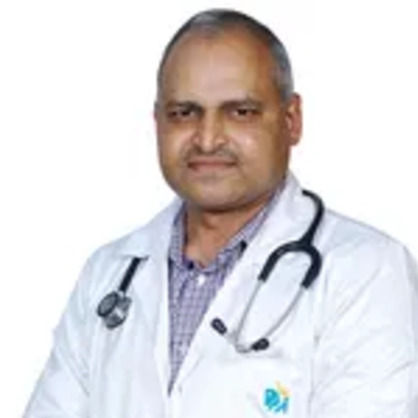Human Metapneumovirus Overview and Guidance
Get comprehensive information on Human Metapneumovirus (hMPV), including symptoms, transmission, and risk factors. Learn about diagnosis, treatment options, and preventive measures to stay safe.


If you or a loved one has been feeling under the weather with cold-like symptoms that just won’t go away, you might be dealing with Human Metapneumovirus (HMPV). While it’s not as commonly discussed as the flu or common cold, HMPV can cause similar respiratory infections, especially in young children, older adults, and people with weakened immune systems.
This article will help you understand what HMPV is, its symptoms, how it spreads, and what you can do to manage it.
What Is Human Metapneumovirus (HMPV)?
HMPV is a virus that affects the respiratory system—meaning it impacts the nose, throat, and lungs. It was first identified in 2001, but researchers believe it has been around for much longer. Like the flu or RSV (Respiratory Syncytial Virus), HMPV can cause mild to severe respiratory infections.
Who Is Most at Risk?
While anyone can get HMPV, certain groups are more likely to develop severe symptoms:
Infants and young children (especially under 5 years)
Older adults (65+)
People with weakened immune systems (due to conditions like asthma, COPD, or cancer treatment)
Those with chronic lung or heart diseases
Symptoms of HMPV
HMPV symptoms are similar to those of a common cold or flu, which is why it often goes undiagnosed. Common signs include:
Cough (sometimes severe)
Runny or stuffy nose
Sore throat
Fever
Wheezing or difficulty breathing (especially in young children)
Fatigue
In severe cases, HMPV can lead to bronchitis, pneumonia, or worsening of asthma.
Consult Top Specialists
How Does HMPV Spread?
HMPV spreads just like other respiratory viruses:
Through the air (when an infected person coughs or sneezes)
By touching contaminated surfaces (doorknobs, toys, etc.) and then touching your face
Close personal contact (hugging, shaking hands)
The virus is most contagious during winter and spring, similar to flu season.
How Is HMPV Diagnosed?
Since HMPV symptoms resemble other respiratory infections, doctors may need to run specific tests to confirm it. These include:
Nasal swab tests (similar to COVID-19 or flu tests)
PCR tests (to detect the virus’s genetic material)
If you or your child has persistent respiratory symptoms, especially with difficulty breathing, consult a doctor for proper testing.
Treatment and Management
There is no specific antiviral treatment for HMPV, but most people recover with supportive care. Here’s what you can do:
1. Home Care for Mild Cases
Rest and hydration: Drink plenty of fluids (water, herbal teas, broth).
Over-the-counter medications: Pain relievers (like acetaminophen or ibuprofen) can help with fever and discomfort.
Humidifiers: Moist air can ease coughing and congestion.
Saline nasal drops: Help relieve stuffiness, especially in babies.
2. When to Seek Medical Help
Contact a doctor if:
Breathing becomes difficult or fast
Fever lasts more than 3-4 days
Symptoms worsen instead of improving
The patient is an infant, elderly, or has a weakened immune system
Severe cases may require hospitalisation for oxygen support or IV fluids.
Preventing HMPV Infection
Since there’s no vaccine for HMPV yet, prevention is key:
Wash hands frequently with soap and water.
Avoid close contact with sick people.
Disinfect surfaces (especially during flu season).
Cover coughs and sneezes with a tissue or elbow.
Stay home when sick to avoid spreading the virus.
Conclusion
HMPV is a common but often overlooked respiratory virus. While most people recover without complications, it can be serious for high-risk individuals. By recognising the symptoms early and taking preventive steps, you can protect yourself and your family.
If you suspect HMPV or have persistent respiratory symptoms, consult a doctor for proper diagnosis and care.
Need medical advice? You can book a consultation or schedule a test through Apollo 24|7 for expert guidance.
Consult Top Specialists
Consult Top Specialists

Dr Syed Mateen Pasha
General Physician
2 Years • MBBS
Bengaluru
PRESTIGE SHANTHINIKETAN - SOCIETY CLINIC, Bengaluru

Dr. M L Ezhilarasan
General Practitioner
6 Years • MBBS
Visakhapatnam
Apollo 24|7 Clinic - Andhra Pradesh, Visakhapatnam

Dr. Harshendra Jaiswal
General Physician/ Internal Medicine Specialist
12 Years • MBBS , MD (General medicine)
Kolkata
108 DHANA DHANVANTARI Clinic, Kolkata
(25+ Patients)
Dr. Thandra Ramoji Babu
General Physician/ Internal Medicine Specialist
5 Years • MBBS, DNB(General Medicine)
Warangal
Sai Ram multi-specialty hospital, Warangal

Dr. Dhanraj K
General Physician/ Internal Medicine Specialist
25 Years • MBBS, MD Internal Medicine - Osmania Medical College, Hyderabad
Hyderabad
Apollo Hospitals Jubilee Hills, Hyderabad
(375+ Patients)
.webp)



.webp)